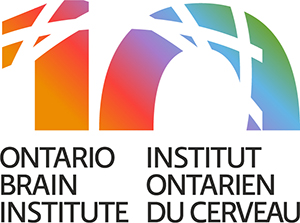Ontario Brain Institute helps scientists speed discoveries in brain research
TORONTO, March 5, 2012 /CNW/ - The Ontario Brain Institute is helping launch three cutting-edge research projects that will help doctors learn more about treatment and care for a variety of brain disorders and support over 80 research jobs.
The three new projects are the first initiatives to be supported through the Institute and will help children and adults affected by:
- Autism Spectrum Disorders, Attention Deficit Hyperactivity Disorder, Obsessive Compulsive Disorders and Intellectual Disability
- Cerebral Palsy
- Epilepsy
Along with supporting more than 80 research positions, the projects will also provide valuable training to medical and academic professionals and are expected to result in economic opportunities through the commercialization of discoveries.
QUOTES
"It is wonderful to see how researchers, clinicians, companies and patients from different institutions and disciplines across the entire province have pooled their strengths to develop innovative approaches to brain disorders that have significant impact not just on patients but their families. This is laying the foundation for the transformation of Ontario's neuroscience capabilities in research, treatment, and commercialization."
— Donald T. Stuss, President and Scientific Director, Ontario Brain Institute
"Ontario is at the cutting-edge of brain research that will help improve the quality of life for Ontarians, while creating high-skilled jobs. The Ontario Brain Institute is helping us find better therapies for children and youth with brain disorders that will help them achieve their full potential."
— Brad Duguid, Minister of Economic Development and Innovation
"Our province is a leader in brain research and these initiatives demonstrate our commitment to improve the quality of life for Ontarians. I'm proud of the important research underway at institutions like Holland Bloorview and look forward to the discoveries that will be made."
— Kathleen Wynne, MPP, Don Valley West
QUICK FACTS
- In Ontario, the economic impact of brain diseases and disorders is estimated to be $39 billion annually.
- The global market for central nervous system diagnostics and therapeutics is estimated at $130 billion and is growing by 10 per cent per year.
- Canada is among the top five countries in the world in neuroscience research, and the province is a leader in Canada, with a number of world-recognized strengths.
- Ontario is home to more than 500 top neuroscientists.
LEARN MORE
About the Ontario Brain Institute.
BACKGROUNDER
Ontario Brain Institute - Research Projects
In 2010, the Government of Ontario created the Ontario Brain Institute as an independent, not-for-profit corporation. Its goal is to bring together the province's top brain researchers and business experts who can turn their discoveries into products and services.
The institute's first three research projects aim to discover new therapies and technologies that will significantly improve the quality of life for affected children and adults and their families - in Ontario and around the world.
ONTARIO BRAIN INSTITUTE PROJECTS
Personalized treatments for Cerebral Palsy
Childhood Hemiplegic Cerebral Palsy Integrated Neuroscience Discovery Network "CP-NET"
| Lead researcher(s): |
Darcy Fehlings |
| Lead institution: |
Holland Bloorview, University of Toronto |
| Researchers involved: |
27 |
Cerebral Palsy (CP) is the most common physical disability in children: one in 300 people suffer from CP. In hemiplegic CP one side of the brain is injured, during or shortly after birth. This results in hemiplegia, characterized by the weakness of an arm, leg, or both on one side of the body. Children with hemiplegia often have difficulty walking and/or using their hands and arms. They may also have problems with seizures, thinking, communicating and behaviour.
In this study, researchers, companies, clinicians and patient-advocacy organizations will work together to develop personalized treatments and early interventions that will lead to improved quality of life for those with CP. Leading-edge rehabilitation technologies will be used, such as video game technology that helps children strengthen weak arms.
Better Treatments for Neurodevelopmental disorders
Province of Ontario Neurodevelopmental Disorders Network (POND)
The POND project will study neurodevelopmental disorders such as Autism Spectrum Disorders, Attention Deficit Hyperactivity Disorder, Obsessive Compulsive Disorders and Intellectual Disability. It will:
- Create the first Canadian clinical trials network specializing in childhood neurodevelopmental disorders, in order to accelerate the creation of new, more effective medications
- Develop a large clinical database of children with these disorders to advance scientific understanding
- Develop models to better understand disease mechanisms and quicken the pace of testing.
The Epilepsy Discovery Project - New Approaches to Intractable Epilepsy
| Lead researchers: |
W. McIntyre Burnham, University of Toronto, Jorge Burneo, University of Western Ontario |
| Lead institutions: |
McMaster University, University of Ottawa, University of Toronto, University of Western Ontario |
| Researchers involved: |
26 |
Epilepsy is the second most common neurological condition worldwide after headaches. 76,000 people in Ontario are affected, along with 50 million people worldwide. 30 percent of persons with epilepsy cannot be helped by drugs.
This comprehensive study will conduct research, working with companies and patient groups, to improve the diagnosis and treatment of epilepsy through innovative therapies - including drug and gene-related therapies; and by optimizing medical diet, surgery and, deep brain stimulation.
An unprecedented collaboration between Ontario's premier academic researchers and doctors, not-for-profit epilepsy organizations and the private sector, the project will advance epilepsy care from diagnosis to treatment, improving the lives of patients and their families, and establishing Ontario's place as a world-class focal point for epilepsy research and patient care.
Image with caption: "Video Game Therapy Builds Brains for Children with Cerebral Palsy - left to right - Minister Brad Duguid, Joseph L. Rotman, Chair Ontario Brain Institute, Sheila Jarvis, President and CEO, Holland Bloorview and Dr. Darcy Fehlings, lead scientist for CP-NET, Holland Bloorview watch Megan demonstrate Virtual Reality Therapy for children with cerebral palsy. www.braininstitute.ca (CNW Group/Ontario Brain Institute)". Image available at: http://photos.newswire.ca/images/download/20120305_C9767_PHOTO_EN_10742.jpg
Media: Victoria Ollers, 416-822-2288, [email protected]
Ontario Brain Institute: Lynn Butler, Manager, Government Relations & Strategic Communications, T: 647.847.3136

Share this article